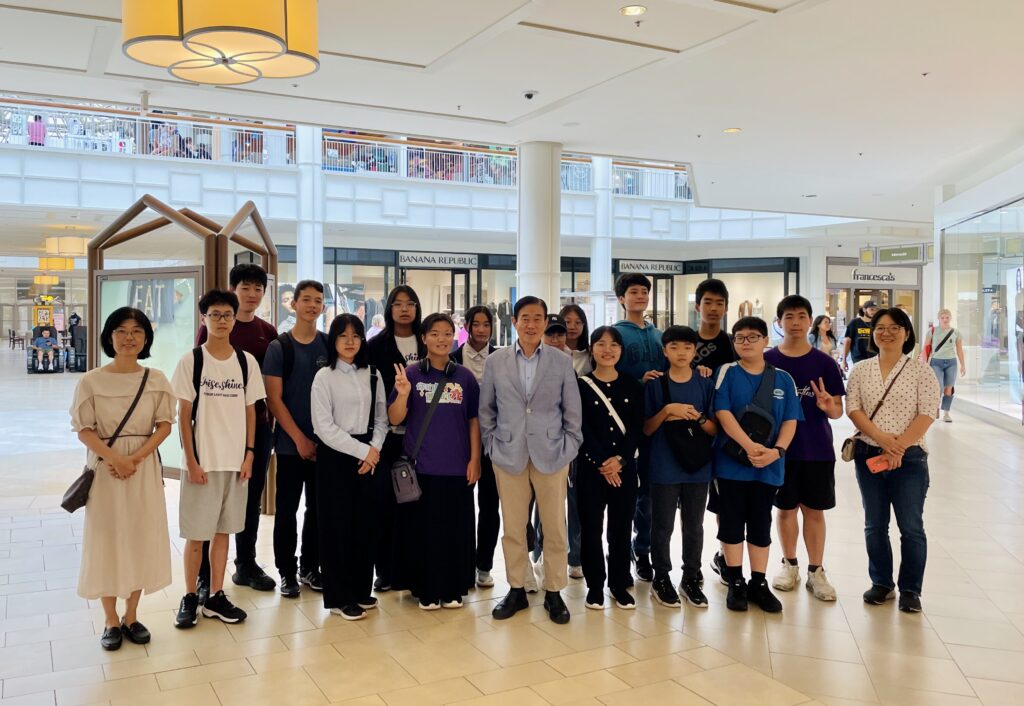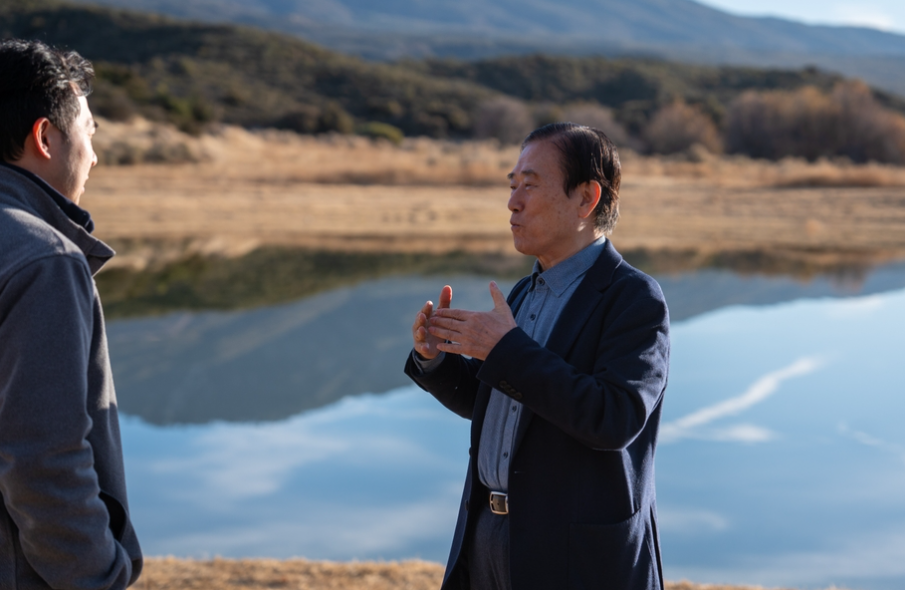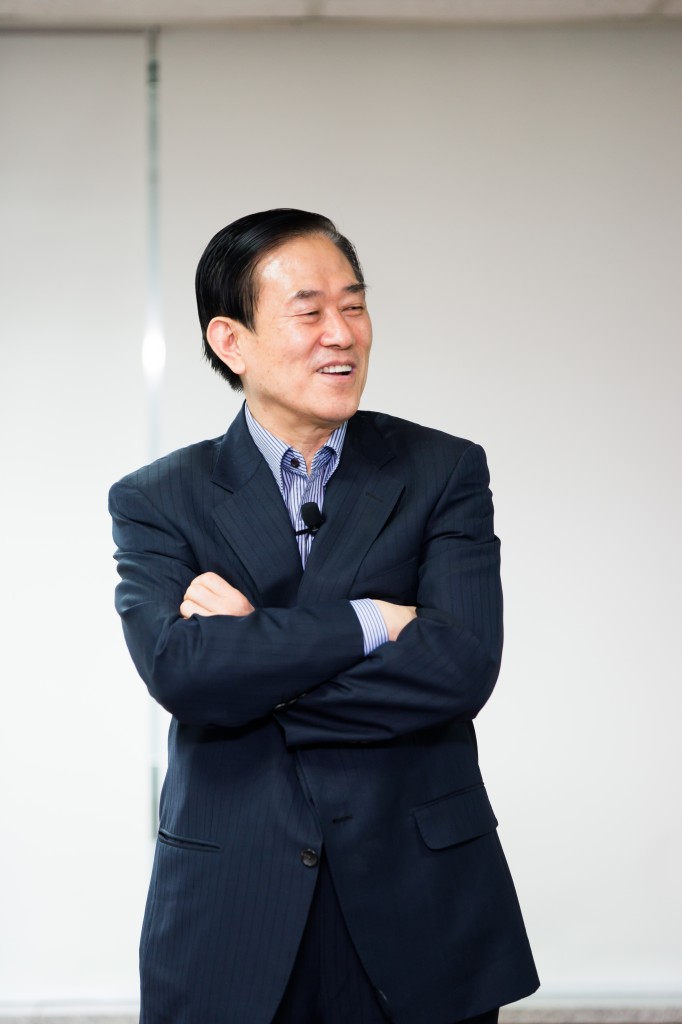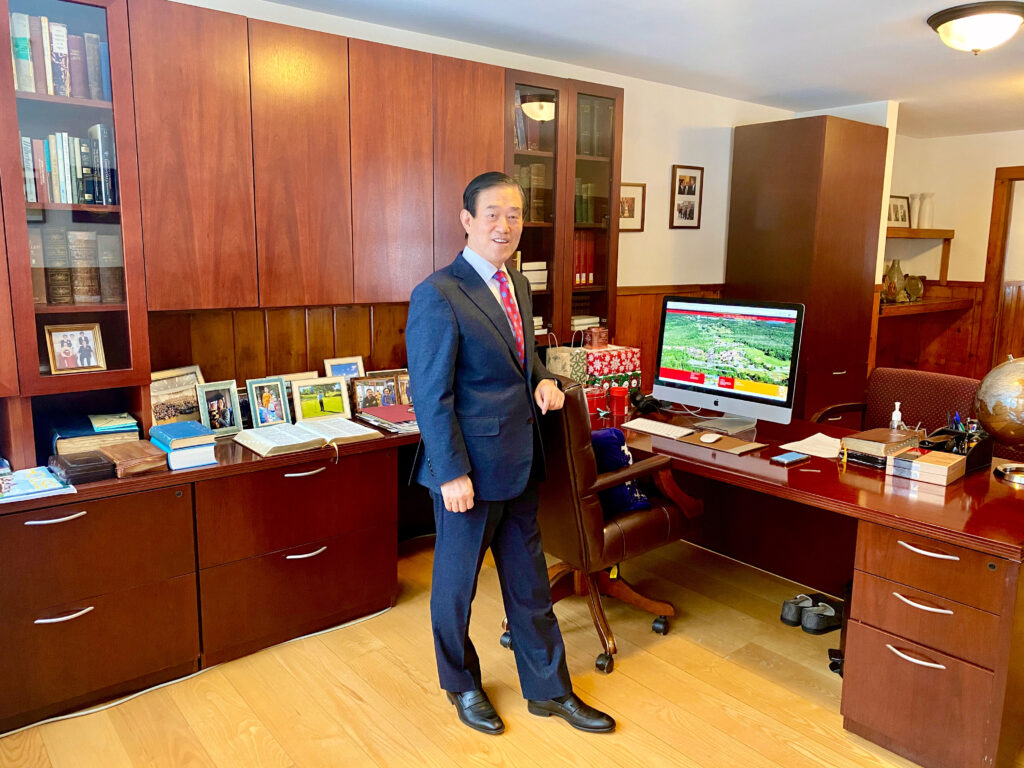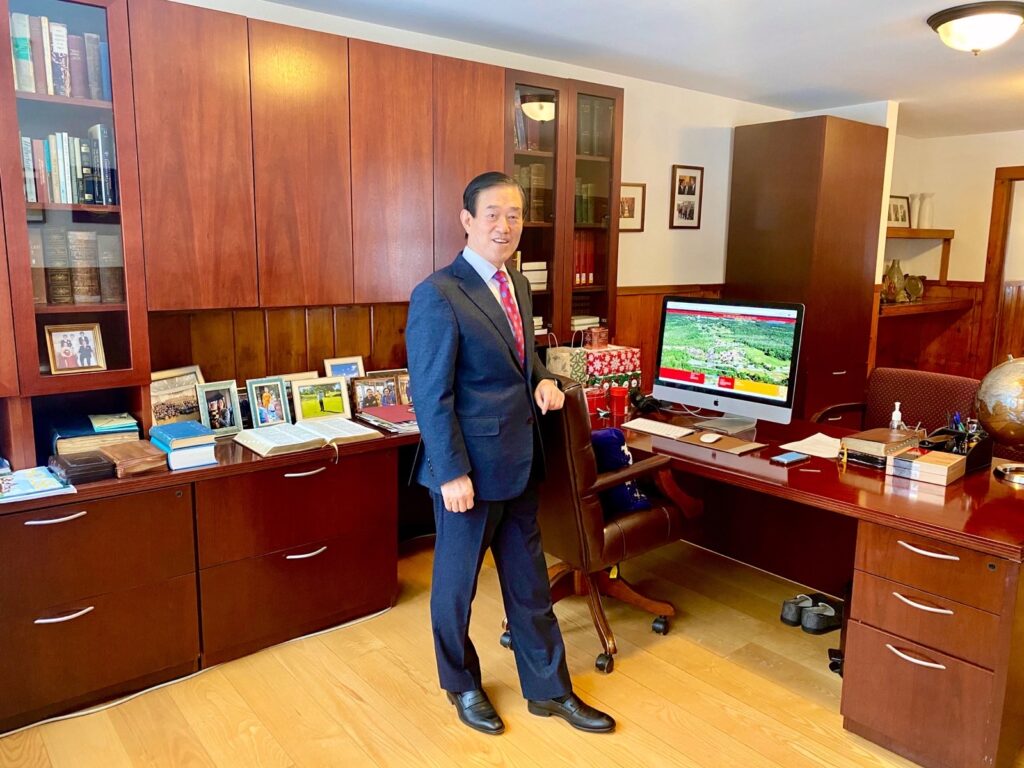
1. A Faith That Looks to God’s Sovereignty and Work (John 5:17, focusing on Acts 9)
Pastor David Jang centers his message on Jesus’ proclamation in John 5:17: “My Father is working until now, and I am working,” emphasizing that all the work we carry out on this earth is ultimately connected to the kingdom of God, and that there is already a work of God that precedes us. He highlights that Jesus did not simply work as the ‘human Jesus,’ but participated in the Father God’s work as His coworker. This is an important spiritual insight for us today as well: although believers encounter various situations and labor diligently in life and ministry, there is always ‘God’s world’ at work in the background. Recognizing and acknowledging this fact can lift our faith and ministry to an entirely new level, according to Pastor David Jang.
He explains that as we move past Pentecost in the church calendar and read the Book of Acts, we see the dynamic work and power of the Holy Spirit. Just as in Acts, the Holy Spirit closely intervenes in the lives of believers, calling and guiding them, connecting people with one another, and expanding both the church and the kingdom of God. Once we sense that reality, each individual Christian is filled with awe and wonder, realizing that they live “under the power of the Word.” This experience renews our understanding of Jesus’ words, “My Father is working until now, and I am working,” revealing the truth of being ‘coworkers’ who participate in the Father’s work.
From this perspective, Pastor David Jang offers a detailed exposition of the story of Saul’s conversion in Acts 9. Saul was a severe threat to Christians—a fierce enemy and persecutor of the church. However, the Lord calls this “enemy” directly and, in a surprising act of grace, makes him an apostle to the Gentiles. From a human viewpoint, he appeared utterly impossible to reach, but from God’s viewpoint, a paradoxical reversal occurs: Saul becomes a “chosen vessel.”
On the road to Damascus, Saul encounters a bright light and hears a voice—Jesus speaking to him directly. According to Pastor David Jang, this is the first recorded instance of Jesus’ direct voice after His ascension. At the time, Saul was the person the church most feared and hated, yet the Lord completely transforms him. When the Lord calls out, “Saul, Saul, why are you persecuting me?” (Acts 9:4), Saul falls to the ground, trembling, and asks, “Who are you, Lord?” (Acts 9:5). The light was so intense that Saul lost his sight. He enters Damascus, where for three days he neither ate nor drank, devoting himself to prayer.
Here, Pastor David Jang raises the question of who the ‘primary actor’ is. Saul did not convert because he wanted to change on his own. This was purely “the Lord’s unilateral grace.” Jesus’ work—God’s sovereign and one-sided choice and love—was transforming the very man whom the church regarded as its enemy. Thus, Saul is in profound tension and fear, wrestling with the meaning of God’s voice and Jesus’ call.
At the same time, God was also preparing another person: a disciple in Damascus named Ananias. Pastor David Jang notes that “apostles” and “disciples” are core offices or identities in missions and the church community. Saul (later Paul) is directly called by Jesus to serve as the apostle to the Gentiles, while Ananias, as a disciple, hears the Lord’s voice and obediently goes to lay hands on Saul, helping to open his eyes—acting as a mediator.
When Ananias is praying and the Lord calls him, “Ananias,” he is not the least bit surprised and answers immediately, “Here I am, Lord.” Pastor David Jang points out that this reveals Ananias’ deep, intimate relationship with God, in which he is already communicating closely with the Lord. By contrast, Saul, who did not yet know the Lord, responded, “Who are you, Lord?” The difference between familiarity and unfamiliarity reflects the difference between those who know God and those who do not.
The Lord gives Ananias specific instructions: “Go to the street called Straight, and at the house of Judas look for a man of Tarsus named Saul, for behold, he is praying” (Acts 9:11). God can be intimately involved in our paths like this. Pastor David Jang calls this “Providence”: God “pre-sees” (from the Latin pre + videre) everything and guides us with sovereign authority. He knows where Saul is and what he is doing, and at the same time He directs Ananias to go and find him. Since Saul is now in prayer, his prayer has already risen before God, and God has made all the preparations for Ananias to come and open his eyes.
According to Pastor David Jang, one key lesson here is that none of our encounters or ministries happen by accident. Every step in evangelism, mission, or caring for someone takes place within God’s preordained providence. Believers need to recognize this “world behind the scenes,” and when we do, our ministry grows to a new dimension.
Ananias protests, “Lord, this man has done much harm to your saints, and he has authority here to bind all who call on your name,” but the Lord replies, “He is a chosen instrument of mine to carry my name before the Gentiles and kings and the children of Israel” (Acts 9:15). From a human perspective, he was a wicked persecutor, yet God sees him as a “chosen instrument.” Furthermore, the Lord declares, “I will show him how much he must suffer for the sake of my name” (Acts 9:16), foreshadowing the weight and power of Saul’s upcoming calling.
Ananias obeys the Lord’s command and goes to Saul. Pastor David Jang finds it astonishing that Saul—once the well-known scholar, a prominent disciple of Gamaliel—would receive the laying on of hands from the otherwise unknown disciple, Ananias. This shows the “authority of coworkers in the Lord” within the church. Even someone who appears insignificant from a worldly standpoint can wield mighty authority in partnership with God, enough to make a great intellect of the day submit.
Finally, through Ananias’ laying on of hands, “something like scales” falls from Saul’s eyes (Acts 9:18). Pastor David Jang interprets these “scales” symbolically as the “distorted perspective” Saul had held in the past. Now that they have fallen away, Saul can open new eyes of faith. God is the One who called Saul (the Lord) and opened his eyes (through Ananias). Yet God accomplished this work with Ananias as His coworker.
In this way, the central message of Acts 9 is that “those who see the world God is already at work in will join in His leading.” Just as Jesus said, “My Father is working until now, and I am working,” so too should we say, “We work in step with the work our Father is doing.” Pastor David Jang underscores this as “the essence of evangelism.” Evangelism is not about finding someone and forcibly dragging them to church; rather, it is being led by God’s hand to someone whose heart is already open, waiting for God’s call. Like the moment in Corinth when the Lord told Paul in a vision at night, “I have many people in this city” (Acts 18:10), God always moves first, and the missionary or evangelist follows. Recognizing that God is already at work dispels our fears and makes us bold coworkers.
Pastor David Jang offers Acts 10 as another example. In that chapter, we meet Cornelius, a centurion of the “Italian Cohort.” Outwardly, he might look like an enemy or a distant outsider to both the Jews and the followers of Jesus, for he is a Gentile soldier. Yet Acts 10:2 introduces Cornelius as “a devout man who feared God with all his household, gave alms generously to the people, and prayed continually to God.”
Here, Pastor David Jang discusses the Bible’s unique view of humanity. Even if someone does not appear to hold a Christian faith, there can be honest souls who truly seek God. Scripture teaches that every person is created in the “image of God” (Imago Dei). Thus, every human is essentially dignified, and anyone can potentially respond to the Lord’s call. Cornelius might have been a Gentile in a military role, but deep in his heart, he was devout and prayed regularly. In due time, his prayers “ascended as a memorial before God” (Acts 10:4).
Cornelius was praying at about the ninth hour (3 p.m.) when he had a vision of an angel who told him, “Your prayers and your alms have ascended as a memorial before God; send men to Joppa to bring one Simon who is called Peter.” At this moment, God had already opened Cornelius’ heart and was orchestrating a plan to connect him with Peter.
Pastor David Jang highlights how Cornelius was already a “person of prayer.” God abundantly blesses those who seek Him through prayer and acts of kindness, and He works intricately in their lives. Simultaneously, God was preparing Peter. Starting in Acts 10:9, Peter goes up on the housetop to pray at about the sixth hour (noon). While praying, he has a vision: a sheet descends from heaven containing various animals, and a voice says, “Peter, rise, kill and eat.” Peter resists, citing the Old Testament law against unclean foods, but God responds three times, “What God has made clean, do not call common.”
This vision goes beyond dietary rules; it symbolizes that Gentiles can be saved by God, and that Peter no longer has the right to decide who is “clean” or “unclean.” Cornelius, a Gentile, could be declared clean if God chooses him. While Peter is still puzzling over the meaning of this vision, the men sent by Cornelius arrive at the gate (Acts 10:17–20).
Thus, God orchestrates a dual preparation. On one side, He readies Cornelius; on the other, He readies Peter. Pastor David Jang describes this as a perfect example of “the Father working while we join Him.” It is all part of God’s meticulous providence that Cornelius summons Peter, and Peter enters a Gentile’s home without hesitation.
According to Acts 10:24 and following, Cornelius gathers his relatives and close friends to meet Peter when he arrives in Caesarea. So great is his reverence that he falls at Peter’s feet in worship, treating him not merely as a “man” but almost as a “man of God.” Peter helps him up, saying, “Stand up; I too am a man” (Acts 10:26), but Cornelius is already filled with a sense of holiness and awe. He explains how four days ago, at the ninth hour of prayer, he saw an angel who instructed him to summon Peter. “Now therefore we are all here in the presence of God to hear all that you have been commanded by the Lord” (Acts 10:33). Pastor David Jang cites this verse to highlight Cornelius’ posture: “We are all here in the presence of God.” This is the posture we should take in worship, in hearing the Word, and in participating in missions and ministry.
Peter preaches the gospel, and the Holy Spirit falls on Cornelius and his household (Acts 10:44–47). This leads Peter and his companions to marvel as they witness the Holy Spirit poured out even on Gentiles. Pastor David Jang notes that this is a pivotal moment in church history, marking the official expansion of the gospel to the Gentile world. Seeing this, Peter declares, “Can anyone withhold water for baptizing these people, who have received the Holy Spirit just as we have?” (Acts 10:47).
Pastor David Jang concludes that it is God who shatters every human boundary, and our job is to participate in His movement. Had Cornelius neglected prayer and almsgiving, or had Peter not prayed, this momentous encounter might have been missed. Yet God’s providence never fails, and He works through those who remain prayerful.
He reiterates that in evangelism and missions, the key is discovering and meeting the “soul God has already prepared.” When Paul was fearful in Corinth, the Lord appeared in a night vision, saying, “I have many in this city who are my people” (Acts 18:10). Everywhere, God has already prepared people. We must listen in prayer, stay watchful, and ask, “Where is God sending us, and whom does He want us to meet?”
Pastor David Jang also encourages believers to approach even small tasks in church life with “reverence and fear before God.” Whether we are cleaning the pulpit or preparing items for the altar, everything should be done in holiness and respect. As this attitude grows in us, we become those who truly live by the confession, “We are all here in the presence of God.”
How can we experience this God who works in our daily lives? First, Pastor David Jang underscores the importance of prayer. In Acts 9, Saul was praying; in Acts 10, Cornelius was praying; Peter received his revelation in prayer. Prayer is how we open our bodies and souls to God, expanding the channel for Him to speak to us. Cornelius adhered to three set times of prayer a day, and devout Jews prayed at 9 a.m., noon, and 3 p.m. Muslims pray five times a day. We must ask ourselves, “How often do we truly stand before God in prayer?”
Secondly, we must be aware that God’s providential guidance can reach every aspect of our lives. Pastor David Jang reminds us that “God is in heaven, and we are on earth” (Ecclesiastes 5:2), and we should constantly inquire, “Lord, what should I do, and where should I go?” Then God will enter our specific life situations, guiding us with His wisdom. Even in small tasks like cleaning the church pulpit, we should always ask, “Lord, is this pleasing to You?” with reverence.
By studying John 5:17 and Acts 9–10, we see that God has already prepared a world of His activity, and when we perceive and obey Him in that world, a “new horizon of faith” opens. According to Pastor David Jang, this is the essential nature of the church and the “spiritual reality” that should undergird believers’ ministries. All service, all ministry, and all evangelism do not solely rely on human effort but unfold within the “great flow” that the Father has already orchestrated. Reflecting on how Saul and Cornelius both came to know Jesus, we clearly see the constant working of God behind the scenes. Likewise, when we fix our gaze on that God and obey Him as coworkers, we will leap forward into the new path God has prepared, just like Saul, Cornelius, and the many people of Acts.
2. “We Are All Here in the Presence of God”
Moving on from Acts 9 to Acts 10, Pastor David Jang says that the story of Cornelius and Peter makes God’s marvelous providence even clearer and more detailed. It illustrates the practical example of John 5:17’s principle—“I am working because my Father is already working”—and shows how Cornelius’ statement, “Now therefore we are all here in the presence of God to hear all that you have been commanded by the Lord” (Acts 10:33), sets a model for every believer’s posture in prayer and ministry.
First, Acts 10:1–2 introduces Cornelius: a Roman centurion of high standing, likely very busy with military responsibilities, yet he “feared God with all his household, gave alms generously to the people, and prayed continually to God.” This overturns our assumptions; having power in the world does not necessarily mean one is far from a reverent life. On the contrary, Cornelius models sincere reverence and prayer while using his resources and authority to help the poor.
Pastor David Jang highlights that every human being, created by God, bears God’s image and thus has the capacity to seek Him. We sometimes confine the search for truth within the church walls alone, but Scripture shows us that true seekers, like Cornelius, can exist outside the formal church. Some may hold positions of authority in the world yet display even greater devotion and compassion than those within the church. Although humanity is subject to sin, we also bear God’s image and intrinsic worth.
Cornelius’ prayers and almsgiving receive a divine answer: an angel declares that his prayers and charity have ascended before God (Acts 10:4). Nothing we do in service or prayer disappears into empty space; it is remembered at God’s throne. Over time, God sends an angel to him at the appointed moment.
Cornelius’ decision to send two servants and a devout soldier to Joppa (Acts 10:7) also shows deliberate and systematic obedience. Rather than acting on impulse after seeing the vision, he promptly and carefully chooses people to carry out the angel’s instruction.
Meanwhile, God is preparing Peter through a parallel process. While Peter is praying at noon (Acts 10:9), he has a vision of a sheet filled with various animals. A voice instructs him to “kill and eat,” and Peter protests that he cannot eat what is unclean according to the law. Pastor David Jang points out that, even as a follower of Jesus and a witness to the resurrection, Peter still seeks to honor the essence of the law. Yet in this moment, God’s voice three times insists: “What God has made clean, do not call common,” foreshadowing the revelation that Gentiles can also receive salvation.
This vision is repeated three times to break Peter’s entrenched beliefs about ceremonial purity and to show him God’s universal plan of salvation. Right after this vision, Cornelius’ men arrive (Acts 10:17–20). The Holy Spirit tells Peter to “go with them, without hesitation.” Peter welcomes them as guests, and the next day he departs for Cornelius’ home in Caesarea.
Again, Pastor David Jang emphasizes God’s perfect timing. Cornelius’ servants arrive exactly after Peter’s vision. Peter’s vision precisely addresses the hurdle of accepting Gentiles. God works in multiple, overlapping ways so that each person recognizes the divine hand at work.
When Peter meets Cornelius, Cornelius greets him with such reverence that he falls at Peter’s feet (Acts 10:25). Peter lifts him up, clarifying that he is only human. Yet Cornelius’ awe is not mere hero worship but reverence for a messenger of God. He recounts how he saw an angel during his prayer at the ninth hour four days prior and was instructed to invite Peter. Then he says, “Now therefore we are all here in the presence of God to hear all that you have been commanded by the Lord” (Acts 10:33). Pastor David Jang repeatedly stresses how crucial this phrase is: “we are all here in the presence of God.” It epitomizes how all believers should approach worship, the Word, and ministry—as if standing before God Himself.
When Peter preaches, the Holy Spirit falls upon Cornelius and his household (Acts 10:44). Those accompanying Peter are astonished at the outpouring of the Holy Spirit on Gentiles, a groundbreaking moment that truly opens the gospel to non-Jews. Peter then declares, “Can anyone withhold water for baptizing these people, who have received the Holy Spirit just as we have?” (Acts 10:47).
Pastor David Jang teaches that this event shows how God transcends human boundaries and that we must align ourselves with His movement. If Cornelius had neglected prayer and almsgiving or if Peter had not prayed, God’s plan might have seemed obstructed. Yet God’s providence is never thwarted, and He works through those who remain in prayer.
He reiterates: the essence of evangelism and missions is to “meet those whom God has already prepared.” Just as the Lord told Paul in a vision, “I have many people in this city” (Acts 18:10), God’s people are already waiting for the gospel. The task of missionaries and ministers is to cultivate a “listening ear” through prayer, asking God to show them where to go and whom to meet.
Likewise, Pastor David Jang encourages believers to treat seemingly small roles in the church with reverence. Whether cleaning the sanctuary or arranging flowers for the altar, if “we do it before God,” we ought to do it wholeheartedly and with proper methods. Over time, this posture shapes us into people who can genuinely say, “We are all here in the presence of God” in our day-to-day lives.
Pastor David Jang then provides practical steps for applying these truths. First, he urges everyone to “become people of prayer.” Cornelius, Peter, and Saul (Paul) all encountered direct guidance from God during prayer. Even today, whether through fixed prayer times or spontaneous moments, we should consistently commune with God, asking, “Where is the Father working, and how can I join?”
Second, we must believe in God’s providential leading and view people and situations from God’s perspective. As Ananias feared Saul, we, too, might label some as beyond the reach of the gospel. But from God’s vantage point, that person could be a “chosen instrument.” Likewise, someone who appears distant—like Cornelius, a Gentile centurion—may have a devout heart hidden beneath the surface. So in every encounter or circumstance, we should trust that “God may already be working behind the scenes.”
Third, Pastor David Jang advises, “As those who stand before God, treat one another as though meeting the Lord’s messenger.” Just as Cornelius bowed to Peter, we should honor and attentively listen to those who preach the gospel or serve the church. Of course, Peter corrected him, “I am also a man,” so we must avoid idolizing people. Still, we should maintain the spiritual perspective that “God can speak to me through this person whom He has called.”
Lastly, Pastor David Jang reminds us to keep in mind that it is God who leads the church’s ministry, missions, and education, not human efforts alone. We plan, organize, and often get elated or discouraged by results, but fundamentally, we are following the God who is already moving. Embracing the truth of Jesus’ words in John 5:17—“My Father is working until now, and I am working”—transforms our service into a holy partnership rather than mere human striving.
Reflecting on John 5:17 and Acts 9–10, we see that our faith, ministry, evangelism, and missions are not self-driven but flow from God’s providential plan. Saul (Paul)’s conversion and Cornelius’ conversion demonstrate that God can save the “worst enemy” or the “distant outsider.” For these astounding processes, God prepared coworkers like Ananias and Peter.
Concluding, Pastor David Jang asserts that God the Father continues to work and has called us to join Him. We should adopt Cornelius’ posture: “We are all here in the presence of God.” All our worship, prayer, service, and ministry unfold before God. Once we realize this, our faith takes on greater depth.
Pastor David Jang applies Jesus’ statement, “My Father is working until now, and I am working,” along with Cornelius’ words, “We are all here in the presence of God,” to our lives today. Everything we do in serving the church, in missions, in evangelism, and in helping others takes place in “God’s prepared battleground.” When we grasp this, we become bolder, more grateful, and more humble, focusing on God and staying attuned to His voice.
Pastor David Jang encourages us to read Scripture (particularly Acts), examine church history, and address today’s ministry challenges with this model: God leads, and we respond with prayerful obedience. Through this approach, the church’s worship, missions, and personal faith can experience renewed revival and miracles, following the way Jesus demonstrated—“participating in the Father’s work.”
Acts 9 and 10 share a common theme: “God works first, chooses people, and when those chosen people respond in prayer and obedience, salvation bursts forth.” Saul’s conversion and Ananias’ ministry, Cornelius’ prayer and Peter’s vision, all illustrate this principle vividly. Therefore, Pastor David Jang passionately appeals for us to hold onto the same principle.
In the end, it all rests on this certainty: “Our lives are lived before God, and He is continually at work.” When we stand firm in this truth, expectant and prayerful for “where and how God is working,” He will guide us through His Spirit. We will meet the people we need to meet, arrive where we are called to go, and walk the path of obedience. On that path, “Acts-like” works of the Holy Spirit can still happen today, Pastor David Jang believes.
Through these teachings, we realize that Jesus’ words, “My Father is working until now, and I am working,” are not confined to the first century but remain a living spiritual reality for believers now. Likewise, Cornelius’ confession—“We are all here in the presence of God”—is not merely a line spoken to Peter long ago; it is a mindset we need to apply to our own worship, study of the Word, and ministry fields.
As we become those who truly “stand before God,” we discover that He is already “working for us and through us.” This divine communion elevates our faith from a theoretical level to a “living power.” Ultimately, this power builds up the church and reveals God’s love and truth in our homes, workplaces, and society, bringing salvation to souls. All these processes testify that the “era of the Holy Spirit” described in Acts continues today.
Pastor David Jang compares this “working of God” and “our cooperation” to a grand drama. Sometimes we may appear to be main actors on stage, but the true protagonist is the Triune God, and we are merely the players He employs. Yet the player’s role remains critical. Actors must heed the director, follow the script, and devote themselves fully to their roles. Likewise, when we listen to God’s plan and voice, as Saul and Cornelius did, we too can become pivotal figures who impact our generation and community.
Pastor David Jang prays that Jesus’ declaration—“My Father is working until now, and I am working”—and Cornelius’ confession—“Now therefore we are all here in the presence of God”—may become our own confession of faith. He believes this is the path we must walk in faith, and on it we will experience the living work of the Holy Spirit. Building on this assurance, through daily prayer, moment-by-moment decisions, and our encounters with others, we will witness that “God is still working,” and we will move forward in faith.
John 5:17 and Acts 9–10 thus embody Pastor David Jang’s central message: whenever we meet others, converse, or perform great or small tasks, behind it all stands the God who is already at work. He calls us into His plan, saying, “Just as I prepared Ananias and called Saul, and just as I prepared Cornelius and sent Peter, I now invite you to walk this path of co-labor.” We must respond to this voice through prayer, meditation on the Word, worship, and commitment. In doing so, we step into a new dimension of faith and ministry, truly living out Jesus’ statement—“My Father is working until now, and I am working”—and Cornelius’ confession—“We are all here in the presence of God.” This, Pastor David Jang insists, is the genuine, Spirit-filled Christian life.
www.davidjang.org

